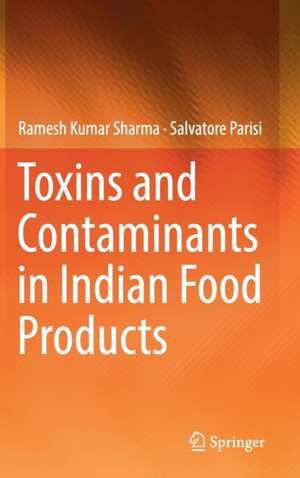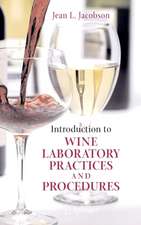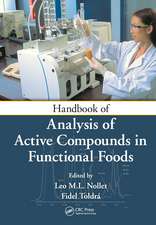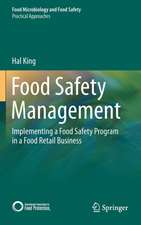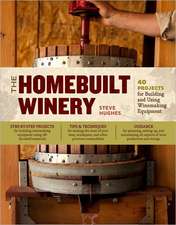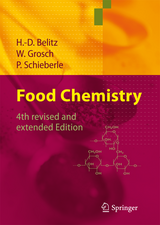Toxins and Contaminants in Indian Food Products
Autor Ramesh Kumar Sharma, Salvatore Parisien Limba Engleză Hardback – 23 mar 2017
This book discusses different aspects of contamination in Indian food products. Particular attention is given to the presence and analytical detection of detrimental substances such as pesticides, mycotoxins and other biologically-produced toxins, food chemicals and additives with natural or industrial origin. Furthermore, the book addresses the production and the commercial exploitation of native botanical ingredients, and the question if such ingredients should be regarded as foods or drugs. It also sheds light on chemical aspects of organic farming practices in India. Readers will also find information on pesticides and other detrimental chemicals detection in Indian farming. The authors present a useful opinion on how and why food contaminants can lead to border rejections during export, in particular to the European Union.
| Toate formatele și edițiile | Preț | Express |
|---|---|---|
| Paperback (1) | 686.04 lei 6-8 săpt. | |
| Springer International Publishing – 20 iul 2018 | 686.04 lei 6-8 săpt. | |
| Hardback (1) | 635.65 lei 6-8 săpt. | |
| Springer International Publishing – 23 mar 2017 | 635.65 lei 6-8 săpt. |
Preț: 635.65 lei
Preț vechi: 747.82 lei
-15% Nou
Puncte Express: 953
Preț estimativ în valută:
121.69€ • 126.97$ • 102.01£
121.69€ • 126.97$ • 102.01£
Carte tipărită la comandă
Livrare economică 13-27 martie
Preluare comenzi: 021 569.72.76
Specificații
ISBN-13: 9783319480473
ISBN-10: 3319480472
Pagini: 72
Ilustrații: VII, 65 p. 16 illus., 1 illus. in color.
Dimensiuni: 155 x 235 x 6 mm
Greutate: 0.29 kg
Ediția:1st ed. 2017
Editura: Springer International Publishing
Colecția Springer
Locul publicării:Cham, Switzerland
ISBN-10: 3319480472
Pagini: 72
Ilustrații: VII, 65 p. 16 illus., 1 illus. in color.
Dimensiuni: 155 x 235 x 6 mm
Greutate: 0.29 kg
Ediția:1st ed. 2017
Editura: Springer International Publishing
Colecția Springer
Locul publicării:Cham, Switzerland
Cuprins
Insecticides in Indian Food Products.- Aflatoxins in Indian Food Products.- Botanical Ingredients and Herbs in India – Foods or Drugs?.- Organic Foods and Farming Practices in India.- Pesticides Detection and Detrimental Chemicals in Indian Farming - Reasons for EU Border Rejections.
Notă biografică
Ramesh Kumar Sharma is a Freelance Writer on food and environment issues particularly related with chemistry. He obtained his M.Sc. degree in Chemistry, with specialization in Physical chemistry, from the University of Rajasthan (India). He has worked as chemist at the Research Laboratory of Sriram Rayons in Kota (Rajasthan, India), and Fellow at the Science Education Centre (University Grants Commission Project) of University of Rajasthan in Jaipur. He has also worked as Chief Investigator at Play Material Project (UNICEF project) of National Council of Educational Research & Training in Jaipur (Field Adviser’s Office), and as Agmark Approved Chemist for edible oil industry and Quality Control Chemist at Tilam Sangh Rajasthan in Bikaner (Rajasthan). Recently, he has been collaborating with Dr. Salvatore Parisi as an author in the SpringerBriefs in Molecular Science: Chemistry of Foods.
Salvatore Parisi is a chemist and food scientist, working as a consultant for the food industry and as a lecturer in the academia. He obtained his MSc in Chemistry from the University of Palermo, and a PhD from the University of Messina (Italy). Dr. Parisi is also a Preventive Controls Qualified Individual (PCQI) after the successful completion of the FSPCA Preventive Controls for Human Food course in 2016 (according to new U.S. regulations). He serves as series editor for the SpringerBriefs in Molecular Science: Chemistry of Foods, and he is a member of the Editorial Board of different scientific journals. He is an associate of the Sicilian Order of Research Chemists (Italy), the EFSA’s Expert Database (EDB), Parma (Italy), and the FAO Food Safety Expert Roster, Rome (Italy). In addition, Dr. Parisi is a member of the AOAC Official Methods of Analysis SM (OMA) Expert Review Panel (ERP) for Fertilizers. He has an important scientific contribution (with more than 120 articles, books and software) in the fields of Packaging Technology, Polymer Chemistry, Shelf Life Prediction and Food Microbiology (Italian Oxoid Award, 2001).
Salvatore Parisi is a chemist and food scientist, working as a consultant for the food industry and as a lecturer in the academia. He obtained his MSc in Chemistry from the University of Palermo, and a PhD from the University of Messina (Italy). Dr. Parisi is also a Preventive Controls Qualified Individual (PCQI) after the successful completion of the FSPCA Preventive Controls for Human Food course in 2016 (according to new U.S. regulations). He serves as series editor for the SpringerBriefs in Molecular Science: Chemistry of Foods, and he is a member of the Editorial Board of different scientific journals. He is an associate of the Sicilian Order of Research Chemists (Italy), the EFSA’s Expert Database (EDB), Parma (Italy), and the FAO Food Safety Expert Roster, Rome (Italy). In addition, Dr. Parisi is a member of the AOAC Official Methods of Analysis SM (OMA) Expert Review Panel (ERP) for Fertilizers. He has an important scientific contribution (with more than 120 articles, books and software) in the fields of Packaging Technology, Polymer Chemistry, Shelf Life Prediction and Food Microbiology (Italian Oxoid Award, 2001).
Textul de pe ultima copertă
This book discusses different aspects of contamination in Indian food products. Particular attention is given to the presence and analytical detection of detrimental substances such as pesticides, mycotoxins and other biologically-produced toxins, food chemicals and additives with natural or industrial origin. Furthermore, the book addresses the production and the commercial exploitation of native botanical ingredients, and the question if such ingredients should be regarded as foods or drugs. It also sheds light on chemical aspects of organic farming practices in India. Readers will also find information on pesticides and other detrimental chemicals detection in Indian farming. The authors present a useful opinion on how and why food contaminants can lead to border rejections during export, in particular to the European Union.<
Caracteristici
Illustrates different aspects of contamination problems in Indian food products Evaluates organic farming practices in India Reviews problems due to detrimental chemicals detection in farming and export border rejection reasons Includes supplementary material: sn.pub/extras
